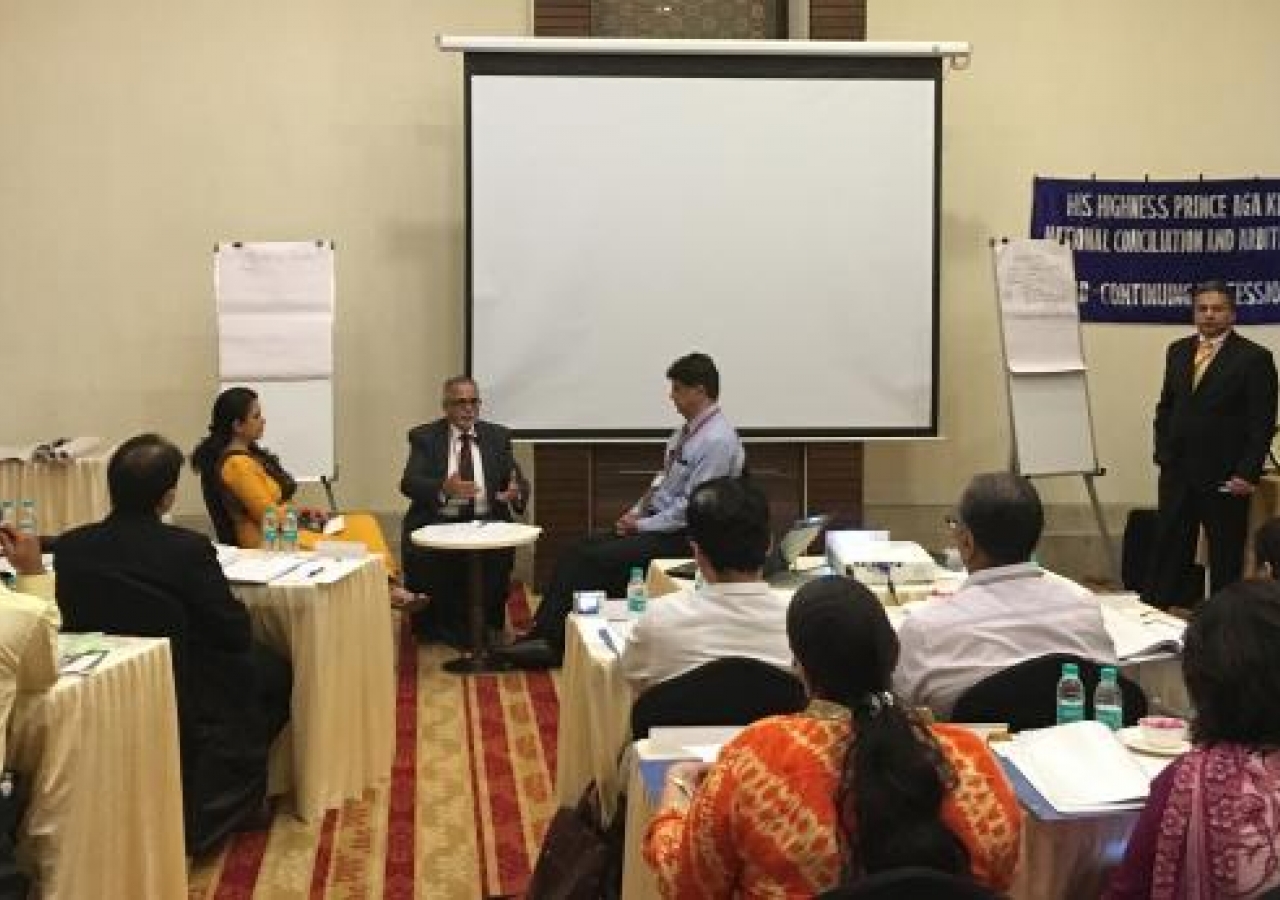On 11 July 2012, the Aga Khan International Conciliation and Arbitration Board (“ICAB”) received approval from Mawlana Hazar Imam to implement a new and unique training model for the global CAB system by utilising TKN volunteers.
In his message to ICAB, Mawlana Hazar Imam said, “I have sought for many years to encourage our Constitutional bodies to offer best practice to the Jamats that these bodies serve, and the educational processes which you have proposed for the future of the CAB system are excellent, and will, I hope, fulfill precisely my aspirations in regard to best practice in our Constitutional bodies.”
ICAB formed an international task force comprising of TKN volunteers to survey the needs of each National CAB; review literature on best practices; consult academic and training institutions; and, apply lessons learned from other Ismaili training programs.
Based on the findings of the task force, and extensive guidance received from Mawlana Hazar Imam, ICAB retained the Centre for Effective Dispute Resolution (CEDR) to develop a new global Mediation and Conciliation Training Programme (MCTP), and to train and develop a team of TKN volunteers to become Certified Trainers (CTs) who would thereafter deliver training internationally to all members of the CAB system in 18 countries.
ICAB trained a total of 43 volunteers from 16 countries as trainers. Other TKN volunteers translated the training materials into various languages, including Arabic, French, Gujarati, Hindi, Urdu, Farsi, Tajik, Russian and Portuguese to ensure that training could be provided in these languages.
The new global training model has been a key catalyst in the evolution of CAB’s services, and its initial success has largely been due to the work and commitment of ICAB’s TKN volunteers. This TKN assignment has also provided volunteers, such as Jenna Bata and Akbar Ebrahim, an opportunity to transfer newly acquired skills into their professional careers. “As a TKN volunteer, I was able to access new opportunities to learn and grow amongst peers who are the best in their field,” said Jenna. She added, “since becoming a TKN volunteer for ICAB training internationally, I have transferred these skills to my work and now practice as a mediator and conflict resolution trainer, so the impact has been extensive and life changing.” Akbar was also able to leverage his experience into professional opportunities. “I was selected by the Roster of Mediators and Trainers of the Superior Court of Justice in Ontario, Canada to train and coach lawyers, police officers and other professionals in the Caribbean Islands on a project of the Government of Canada aimed to improve access to justice in the Caribbean.”
As the CAB system evolves and improves the quality of services offered to the Jamat, we look forward to ongoing engagement from TKN volunteers to achieve Mawlana Hazar Imam’s vision for this institution.
Says Zulie Sachedina, “As ICAB Chair, I am inspired and humbled by the commitment and dedication of the TKN volunteers who wholeheartedly serve with us. I am deeply grateful for their support.”








